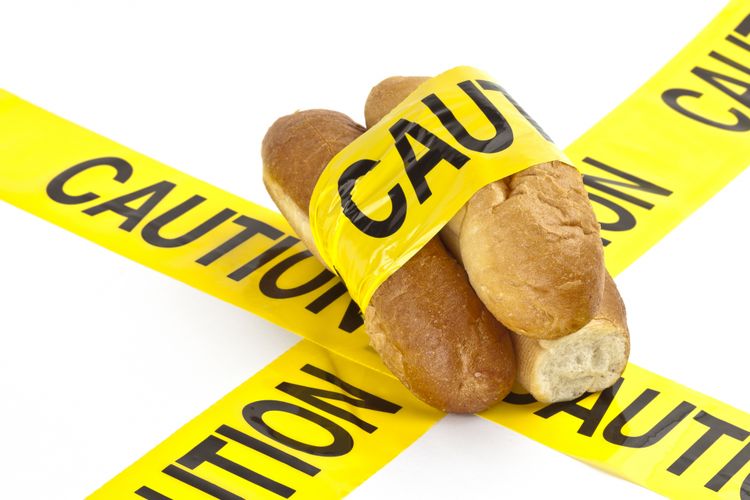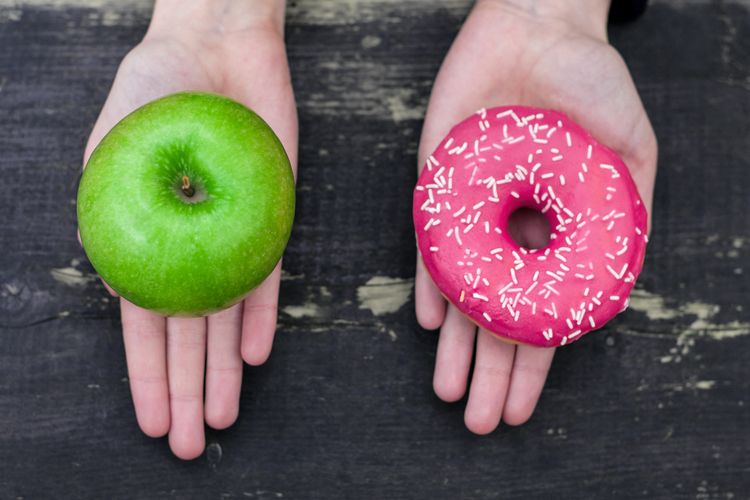Cholesterol has been considered negative. Many people avoid cholesterol foods, can cause heart disease, the rumor said. This may be true but it may not be. But, do you know what cholesterol is really? Is it really as bad as you imagine? Find out all about this substance here.
What is cholesterol?
Cholesterol is a candle, like fat, found in all cells in the body. This substance may often be viewed negatively during this time. Almost everyone assumes high cholesterol foods should be avoided. But, did you know cholesterol is actually needed by the body?
Yes, the body needs this substance to make hormones (such as the hormone testosterone, cortisol, and estrogen), vitamin D, and bile acids to help digest fats from food. The body itself can actually make all of these substances as needed, but this may be only in small quantities.
Most cholesterol in the body you may get from food consumption. The liver will produce more of these substances if you consume lots of foods that contain saturated fats and trans fats. This can then cause the cholesterol in your blood to be high.
What is the difference between LDL and HDL?
Cholesterol moves through the bloodstream in the form of lipoproteins. Lipoproteins are made from the fat on the inside and the proteins on the outside. Well, there are two types of lipoproteins that carry cholesterol throughout your body, namely:
- Low density lipoprotein (LDL) is also known as bad cholesterol. High HDL buildup in the body can cause arterial blood vessels (which carry blood from the heart to the rest of the body) clogged. This can then lead to heart disease or stroke.
- High density lipoprotein (HDL) is also known as good cholesterol. HDL carries cholesterol from other parts of the body back to the liver. Then by the liver, this substance will be broken down and removed from the body. Higher amounts of HDL than LDL in the body is a good thing for health and can help prevent you from chronic illness.
What are the normal cholesterol levels in the body?
It is important for you to check the levels of LDL cholesterol and HDL in the body. This is one step to prevent chronic diseases, such as heart disease and stroke. Cholesterol levels in the blood are measured at least once every five years in any person over the age of 20 years, these tests commonly referred to as lipid profiles.
The lipid profile test can show the total amount of cholesterol present in the body, the amount of LDL, the amount of HDL, and the amount of triglycerides. Limits for each type of test are:
- Good total cholesterol in the blood is less than 200 mg / dl, included in the high category when levels reach 240 mg / dl or more.
- Good LDL levels in the blood are less than 100 mg / dl, and will harm your health if levels reach 160 mg / dl or more.
- Good HDL levels in the body is 40 mg / dl or more, and can be said to be low if the levels are less than 40 mg / dl.
- Good levels of triglycerides in the blood is less than 150 mg / dl, and included in the high category when levels reach 200 mg / dl or more.
What causes a person to have high cholesterol?
Are you one of those people who have high cholesterol? In that case, it means you have to be more careful in maintaining your health. This condition occurs when you have too much LDL in the blood or too low levels of HDL in the blood. This makes your risk of heart disease greater.
Many plaques (consisting of cholesterol, fat, calcium, and other substances) can form in arterial blood vessels because of high LDL levels. This is called atherosclerosis. As a result, atherosclerosis can clog the bloodstream and cause heart disease.
LDL and HDL levels in the body can be affected by many things, including:
- The food you eat. Eating foods containing saturated fat and trans fats can cause your LDL levels to rise. Examples of foods that contain high fat are, fried, chicken with skin, fatty meat, and fast food.
- Excess body weight. People who are overweight or obese tend to have high levels of LDL.
- Age. The older a person, the more elevated his LDL level. This may be influenced by decreased function and metabolism of the body. So no wonder an elderly person will have a larger LDL number than a younger person. LDL levels will begin to increase after you enter the age of 20 years.
- Lack of exercise. Exercise can actually help raise HDL levels and also make LDL less harmful, by increasing the size of particles that make up LDL.
- Family history. If your family members have a history of high cholesterol, you may experience the same thing. This is because genetics also affect cholesterol levels in your blood, can even be very influential compared to other factors (as above). Skinny people who have high cholesterol offspring can also have high cholesterol as well. So, this disease can not only be owned by fat people only, do not get me wrong.
Genetics can control cells to not get rid of LDL in the blood quickly or can also cause the liver to produce too much LDL. Therefore, if you have high cholesterol offspring, you should control the factors that can be changed (such as keeping your intake of eating and exercising).
What are the symptoms of high cholesterol?
Many people do not know that he has this condition, especially if he never checks it out. Usually he knows that he has this condition along with the diagnosis of other diseases, such as coronary heart disease, heart attack, or stroke. Of course, this is late to prevent the disease from appearing.
Actually there is no sign or special symptoms caused if someone has this condition. Inspecting HDL and LDL levels is the only way to tell if you have high cholesterol levels or are still within normal limits.
For that, you are advised to perform regular lipid profile checks to prevent the development of chronic diseases that can be caused by these conditions. Remember, prevention is better than cure!
What are the dangers if high cholesterol is not treated?
High cholesterol can cause atherosclerosis, where plaque buildup occurs in the walls of the arteries. This can clog the blood stream partially or completely and cause coronary heart disease. If atherosclerosis occurs in the arteries that supply blood to the heart (coronary artery), you may feel chest pain (angina) and other symptoms of coronary heart disease.
Over time, plaque can rupture and cause blood clots to form on the surface of the plaque. If the blood clot is large enough, it can block blood flow to the heart and make the heart muscle deprived of oxygen. If the blood flow does not recover quickly, the heart muscle part begins to die and a heart attack can occur.
Plaque can also form in arteries in other parts of the body, other than the heart, such as arterial blood vessels that carry oxygen-rich blood to the brain and limbs. This can lead to blocked blood flow and lead to problems, such as carotid artery disease, peripheral artery disease, and stroke.
How to lower high cholesterol?
Do not worry, if you are one of those people who have this condition, there are still many things you can do to lower LDL and increase HDL so you avoid the risk of chronic illness. Some ways to lower high cholesterol are:
1. Change your eating habits
One of the things that affect the levels of HDL and LDL in the body is the food you eat. For that, you need to control the intake of foods you eat so that levels of HDL and LDL are maintained. Should avoid foods containing saturated fats or high trans fats. Both types of these fats can increase LDL in the blood.
Examples of foods to avoid or limit their consumption are offal, fatty meats, butter, cream, oily or fried foods, high fat milk, and more.
2. Lose weight
People with excess body weight tend to have higher LDL than HDL. This is because usually fat people often overeat and rarely exercise. In order to avoid high cholesterol, it is recommended that you lose weight if you have excess body weight.
No need to lose weight to thin. Simply lose your weight until it reaches normal weight. This weight-loss effect is very positive for your LDL and HDL levels. Weight loss of 5 kg alone is able to reduce cholesterol levels to 8%.
Perform this weight loss in a healthy way, so not only the weight of water is reduced but also the weight of fat. You simply target your weight loss by 0.5-1 kg per week.
3. Do regular exercise
High LDL and low HDL are closely related to excess weight. Therefore, you need to burn body fat by doing regular exercise. Regular exercise can help increase HDL levels as well as lower LDL and triglyceride levels.
Do exercise for at least 30 minutes per day or 150 minutes per week for this benefit you can feel.
4. Stop smoking
Smoking can lower HDL in the body, so that LDL levels can continue to increase. In addition, smoking can also injure the walls of your blood vessels. For that, you should stop smoking if you want to avoid the disease due to high cholesterol.
5. Avoid stress
When stress, LDL levels can increase, loh. For that, you should avoid stress. Find fun activities that can make yourself calm, so avoid stress. In addition, you also need to meet your sleep needs. Lack of sleep can make the body stress.
What are cholesterol-lowering foods?
If you do not want LDL high, then you should eat more foods that contain good fats (unsaturated fats) than bad fats (saturated fat and trans fats). Some examples of food sources of unsaturated fat that you can consume to help lower high LDL levels are:
- Olive oil
- Salmon, tuna, sardines, herring, or other omega-3 rich fish (but should not be fried)
- Avocado
- Walnuts, almonds, meds, soybeans, and other nuts
In addition to foods high in unsaturated fats, foods high in fiber is also a cholesterol-lowering food. Fiber can help lower LDL and increase HDL. Fiber in foods can block the absorption of this substance by the body and help remove it from the body through the feces. Vegetables and fruits are a group of foods that contain high fiber.
In addition, oatmeal and whole wheat foods also contain high fiber.
Do I need to take cholesterol drugs?
In addition to changing the pattern of life, how to lower other cholesterol is to consume cholesterol drugs. Cholesterol drugs can lower LDL faster by 50% compared to other ways. Like, controlling fat intake only lowers LDL by 10%, while losing weight 5-10% of the initial weight only managed to reduce LDL to 15%, quoted from WebMD. So, no wonder if many people prefer to use drugs to lower LDL than changing lifestyle.
Cholesterol drugs work by blocking substances the body needs to make cholesterol, reduce triglyceride levels in the body, and help absorb cholesterol and get rid of it from the body. One of the most commonly used cholesterol drugs is statins, including atorvastatin, lovastatin, simvastatin, pravastatin, and rosuvastatin.
However, do not just rely on cholesterol drugs alone. You still need to keep your HDL and LDL levels normal by controlling your regular eating and exercise intake. Not that you've been using cholesterol drugs so you can eat anything free, that's wrong. After all, using statin cholesterol drugs can also cause side effects.
Side effects that can be generated from statins are dizziness, digestive problems, muscle and joint pain, type 2 diabetes mellitus, to muscle and liver damage. After knowing the side effects of statins, do you still want to use cholesterol drugs? Whether you need to use cholesterol drugs or not, it depends on the cholesterol levels in your body. You should ask your doctor.










